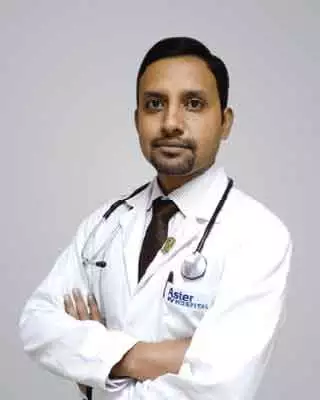Bangalore, 18 April 2022: A 25-year-old patient with an extremely rare disease called Kartagener’s syndrome, where the organs develop on the opposite side of the body recently underwent lung transplantation surgery at Aster RV Hospital. This is an extremely rare condition that causes the mirror image reversal of internal organs and is said to occur in about 1 in 30,000 of the population. Also called primary ciliary dyskinesia or situs inversus totalis, patients experience breathing problems from birth and suffer from repeated respiratory tract infections. People with this disorder often suffer from lung infections such as bronchiectasis, recurrent sinusitis, and have year round nasal congestion and a chronic cough.
“Shivam (name changed) had developed bronchiectasis in both lungs which affected the left more than the right with complete destruction of the left lung. This also put extensive pressure on his right heart. In the last month, the patient got admitted to the hospital for breathing difficulties which took a severe turn, due to which he had to be put on ventilator. A lung transplantation surgery would be life-saving and the only option for the patient,” explained Dr. Sandeep Attawar, Chair & Director of Thoracic organ transplants and Assist devices at KIMS Heart & Lung Transplant Institute.
Surgical challenges
Because of lower weight and poor nutritional status of the patient surgical challenges like poor healing and dehiscence, the patient needed meticulous handling. As the left lung was badly adhered to the chest wall, releasing and retrieving the damaged lung took a long while with risk of higher bleeding and injuries to very important nerves. Even though the heart was supposed to be towards the right chest in his case, due to a collapsed left lung it was pushed towards the left due to hyperinflation of the right lung. Mobilisation of the distorted anatomy and implantation of the new lungs was a great surgical challenge which was managed by highly skilled and experienced team
Hailing from Shimoga, Shivam was lucky enough to find a very good match of donor lungs right the day after he registered on the organ transplant list for donor lungs. The surgery was conducted for a period of 8 hours during the first week of March and went smoothly without any complications. The patient responded to the donor lungs very well and showed optimal signs of recovery within just 3 days of the surgery.
“While people with this disorder are largely able to live a normal life, those with lung involvement in the disease are unable to effectively clear fluid and mucus from the airways, leading to build-up and consequent accumulation of bacteria and making them more prone to infection. Repeated infections lead to poor quality of life, lower appetite, weight loss and repeated hospital admissions. They become oxygen dependent with reduced mobility and develop multiple comorbidities like osteoporosis, muscle weakness, depression etc. Early detection of this disorder will help such patients take measures to preserve their lung function, however in certain cases it is a complicated disorder that can worsen and even turn life threatening. In such cases lung transplant may be the only hope,” said Dr. Pavan Yadav, Lead Consultant – Interventional Pulmonology and Lung Transplantation, Aster RV Hospital
Kartagener’s disease is a genetic disorder that is caused due to a mutated gene which is present in both parents. Shivam’s sister also suffered from the same disease but unfortunately succumbed to it.
“It has been difficult living with this disorder as I had multiple complications throughout my life and breathing was always an issue. I was not able to put on weight, struggled with sports or activities and was always worried about my health. I am grateful to the doctors and the donor family for giving me the chance for a new life. I’m looking forward to getting back to my normal life and pursuing my career,” said Shivam.
He was a student whose studies was interrupted because of his illness and repeated hospital visits and admissions
Lung transplantation surgery is usually conducted through deceased organ donation, making it a challenge for those in need. There is a lack of awareness about organ donation in lungs where more awareness will help bridge the gap and help patients such as Shivam. Very few facilities offer this procedure in India as it is a complex surgery that requires specialized technical know-how and training.

